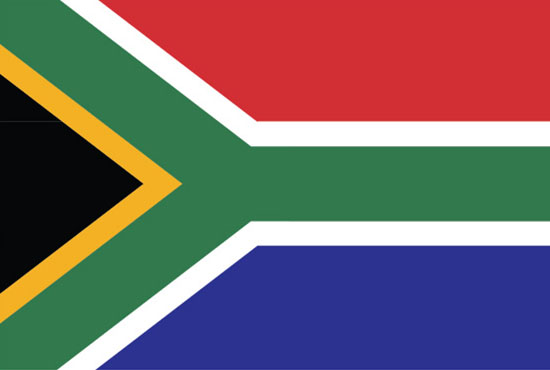Looking for a guide to travel to south africa? If you still don’t know What do you need to travel to South Africa?, we are going to explain everything you have to prepare for entering South Africa and leaving. general information and Requirements to travel to South Africa with its customs, laws and limitations in the customs of South Africa. You have available this travel guide with the emergency telephone numbers, the best time to travel to south africa and everything you need to know to travel safely.

SOUTH AFRICA DATA
| Capital | Praetorship (administrative); Cape Town (legislative); Bloemfontein(judicial) (See map.) |
| Languages | English is the language in current use, plus there are ten additional official languages. |
| Currency | South African Rand |
South Africa Overview
With the current situation you may have to fill out some kind of form to travel to South Africa or covid South Africa requirements, so we recommend you check What is needed to travel to – or any destination in the country in this travel guide.
Guide to travel to South Africa entry requirements
These are the South African entry requirements:
- South Africa has lifted coronavirus travel restrictions. It is no longer necessary to present a vaccination certificate or PCR test
- Your passport must be valid for 6 months from the date of your arrival and have at least 3 blank (“Visa”) pages.
- Vaccination against yellow fever (required for people arriving from countries with risk of transmission).
***Remember: It is the exclusive power of the South African authorities to grant or deny entry to a foreign person to their territory, even if they have a visa.***
Guide to travel to South Africa requirements to leave
Once your stay is over, these are the departure requirements from south africa:
- Passport valid for a minimum period of 30 days from the date of departure from South Africa
- The passport must have at least 2 blank pages when it is presented to the immigration authorities to enter or leave South Africa.

Customs information South Africa
prohibited items
South African local currency
- The currency of South Africa is the South African Rand (ZAR). In many establishments, especially in urban areas, bank cards are accepted and most credit cards are accepted.
- It is recommended to carry a sufficient amount of cash for minor expenses.
- It is also recommended to keep a copy of your credit cards and, if applicable, of the traveler’s check numbers, to facilitate replacement procedures in case of theft or loss.
For more information regarding the local currency or payment methods of the country, consult the section recommendations in money to travel abroad.
South African customs
Make sure you know the customs of the country so you can know what the best time to visit south africa. Here are the most common.
It is only recommended to follow the indications of the guide staff in the tourist areas and sites.
Is it safe to travel to South Africa?
- The political situation in South Africa is very stable, but the country has high levels of common crime (especially theft). Most cases occur in marginal urban areas or in areas far from conventional tourist destinations.
- Basic safety precautions are suggested.
- It is recommended to take extreme precautions to avoid being victims of theft of money, identity documents, bank cards and other belongings.
- It is recommended not to travel alone and not to go out at night to less crowded places, especially if you are not accompanied. It is also recommended to avoid marginal urban areas (townships), especially at night and without being accompanied.
- If you drive on the road, take extreme precautions and drive very carefully, due to the high number of accidents and road incidents.
- If you rent a vehicle, check your route and destination carefully; If possible, get a GPS device if you are going to be driving on your own. Keep your documents or valuables in the trunk or glove compartment of your car.
- Don’t bring your passport with you unless absolutely necessary, and leave a copy of your passport (as well as your credit or debit card) with family members in your country. Keep a scanned copy of those documents.
Laws of South Africa
- While the private use of cannabis is legal, it is illegal to buy or sell it, or use it in public.
- The use, sale and purchase of other drugs is a crime.
- It is illegal to buy, sell, kill or capture any protected wild animal or trade in any of its parts without permission.
- South Africa is a signatory to the Convention on International Trade in Endangered Species of Wild Fauna and Flora (CITES), under which trade in ivory and rhinoceros horn is prohibited.
- Anyone caught buying or dealing in prohibited products will be prosecuted.
- Homosexuality is legal and the South African authorities have introduced legislation that prohibits any discrimination based on sexual orientation.
Other recommendations in a guide to travel to South Africa
- Do not forget to notify your bank that you will travel to South Africa, so that they can inform you how to act in case of theft or loss of your credit cards in South Africa, or problems that you could have when withdrawing money with your cards abroad.
- Recommendations and more advice by topic or type of traveler, visit the section of recommendations for your trip abroad of this guide to traveling to South Africa.
FAQ (Frequently Asked Questions)
What is the official site for tourism in South Africa?
What are the emergency telephone numbers in South Africa?
Police and firefighters: 10111
Ambulance: 10177
Emergencies (calls from cell phones): 112 and 107.
Phone numbers of the Embassy of your country in South Africa: +27 12 460 1004 (office hours) and +27 63 793 7496 (emergencies).
What are the compulsory vaccinations in South Africa?
Yellow fever vaccination is required for travelers coming from countries at risk of yellow fever transmission.
You are encouraged to take out travel medical insurance. Although the country has hospitals and clinics that offer high-quality medical care, care can be very expensive.
HIV incidence and infection levels in South Africa are very high, despite recent progress by the South African government in containing the spread of the virus. We recommend that you take the necessary precautions if you participate in activities that expose you to possible infection.

Leave A Comment